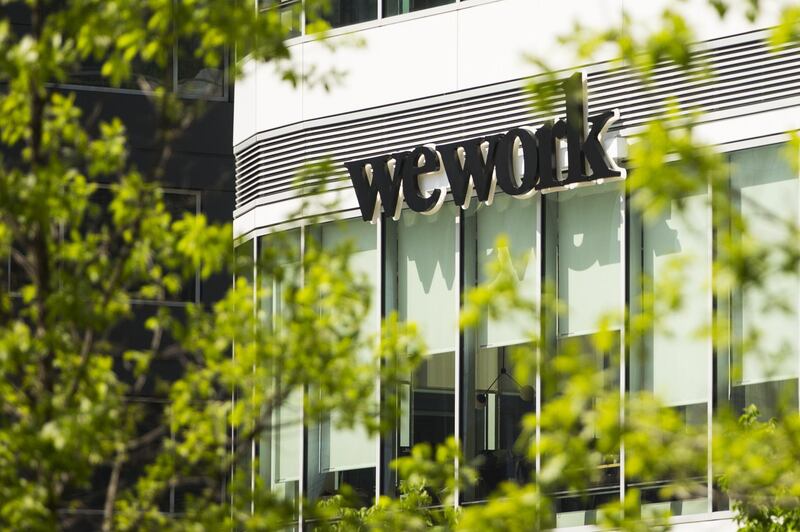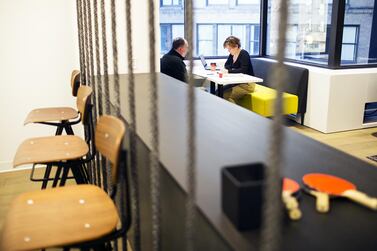HSBC will move more than a thousand of its London workforce to a WeWork co-working space, becoming one of the office space juggernaut's biggest tenants, the Financial Times reported.
Europe's biggest bank by assets inked a multi-year agreement with the New York company. It will relocate employees to 1,135 desks at WeWork’s Two Southbank Place facility in the Waterloo district in Central London.
The Waterloo WeWork location, with capacity for more than 6,000 desks, is expected to open in phases in July and October. WeWork has leased it from the London-based property developer Almacantar.
As a global financial hub, London is an important market for WeWork. According to the US-based real estate services firm JLL, flexible offices will account for about 11 per cent of London office spaces by 2023, up from 6.3 per cent last year.
In an earlier interview, Patrick Nelson, WeWork’s head of property for Europe, said a third of the company’s London portfolio is made up of large business customers.
“If you look at future sales and where that goes in the next two or three years, that number is increasing,” said Mr Nelson.
Valued at $47 billion, WeWork has over 500 locations in nearly 30 countries; the HSBC agreement represents one of its biggest deals in Europe to date.
Co-working space is growing faster than other segments of real estate industry, noted JLL. “With huge amount of venture capital poured into the [co-working] sector, the aggressive growth rate shows no signs of slowing.”
Nearly 1,688 new co-working spaces will be opened worldwide in 2019, a little less than half in the US, according to a report by Coworking Resources. While that is 500 less than the last year. However, the number of co-working spaces will grow more than 40 per cent in next three years and reach 25,968 globally, it added.
WeWork, which is backed by Japan’s SoftBank VisionFund, which counts Abu Dhabi’s Mubadala Investment Company and Saudi Arabia’s Public Investment Fund as its two largest outside investors, is also planning to enter the Middle East by the end of this year with the announcement of its first location in Dubai.
Founded in 2010, the company offers diverse options of private offices and desks, with varying prices depending on the markets. For example, one can rent a desk in Mumbai at $150 (Dh550) but the same will not cost less than $400 in London.
Besides leasing properties, WeWork has also started to purchase properties but it remains a small part of its business.
WeWork counts rivals like Regus, Knotel, Convene and Impact Hub, which all take on long-term leases on buildings in city centres. They in turn refurbish the space with modern amenities and sleek meeting areas to entice tenants on all-inclusive contracts for shorter periods than typical office space landlords.








